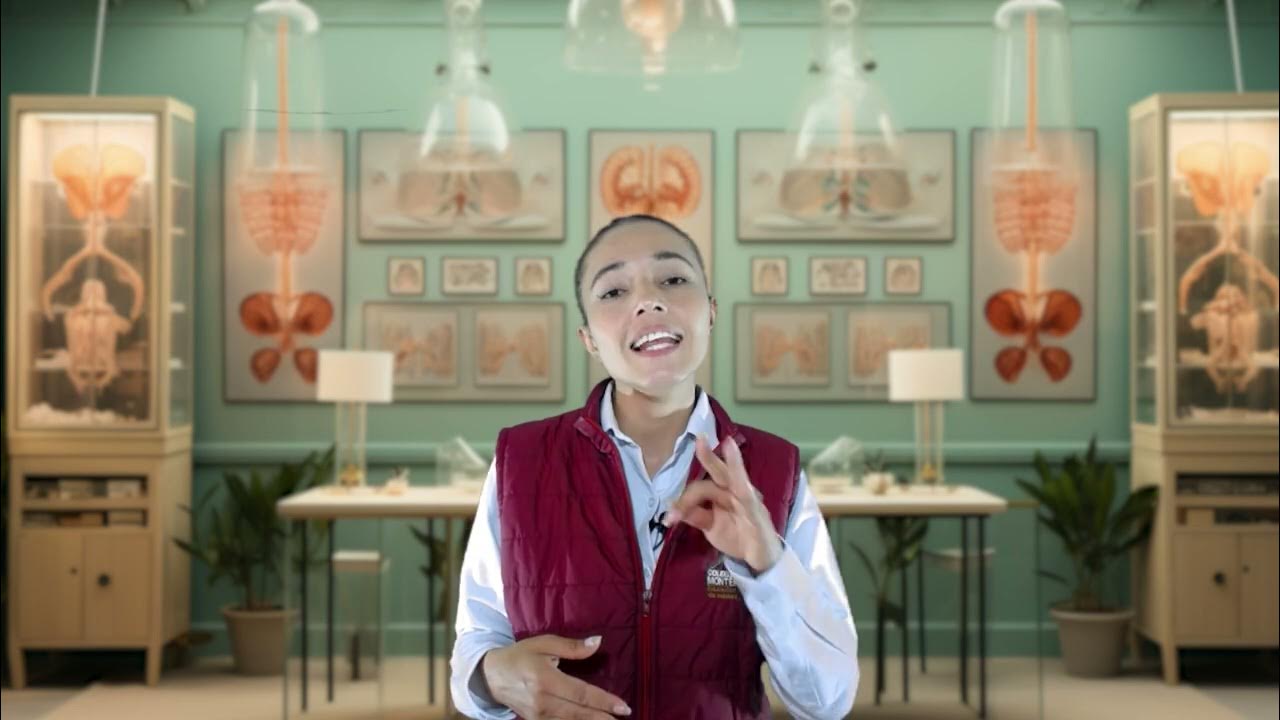How The Immune System ACTUALLY Works – IMMUNE
Summary
TLDREl sistema inmunológico humano es tan complejo como su cerebro, pero a menudo ignoramos cómo funciona. Este script nos lleva a través de la batalla desatada cuando nuestro cuerpo es invadido por bacterias, utilizando una metáfora de invasión alienígena para ilustrar cómo nuestras células defienden nuestra vida. Desde la respuesta inicial de los macrófagos y neutrófilos hasta la activación de células T y B, se describe cómo nuestro cuerpo combate y se adapta para vencer a los enemigos, incluyendo la formación de células memoria que nos protegen a futuro. El guión invita a la audiencia a explorar el misterioso sistema inmunológico en el libro 'Immune: A Journey into the Mysterious System That Keeps You Alive'.
Takeaways
- 🧠 El sistema inmunológico humano es el segundo sistema biológico más complejo después del cerebro humano.
- 🛡️ El sistema inmunitario está compuesto por cientos de órganos pequeños y dos grandes, con su propia red de transporte en todo el cuerpo.
- 🔬 Produce cientos de billones de células frescas diariamente, organizadas como un ejército con diferentes funciones.
- 👾 Protege al cuerpo de microorganismos que buscan invadirlo y de células pervertidas que pueden convertirse en cáncer.
- 🚨 Cuando el cuerpo es invadido, las primeras líneas de defensa se activan en una lucha por la vida o la muerte.
- 🩸 Las células macrófagas son las primeras en responder, atacando y devorando bacterias sin piedad.
- 💣 Los neutrófilos son guerreros suicidas que se sacrifican para matar bacterias, liberando químicos letales.
- 🌐 La inflamación es una señal de que los vasos sanguíneos liberan líquidos y proteínas complementarias que ayudan a combatir a las bacterias.
- 🔬 Las células dendriticas actúan como oficiales de inteligencia, recolectando muestras de bacterias y buscando a las células T ayudantes adecuadas.
- 🛡️ Las células T ayudantes, una vez activadas, clonan y se dividen para combatir la infección y estimular a las células B.
- 🧬 Las células B, al ser activadas, producen anticuerpos específicos para la bacteria invasora a una velocidad de hasta 2,000 por segundo.
- 🛡️ Al final de la batalla, las células memoria se quedan para proteger el tejido y asegurar que la bacteria no vuelve a invadir.
- 📚 El libro 'Immune: A Journey into the Mysterious System That Keeps You Alive' ofrece una exploración detallada del sistema inmunológico, explicado de una manera sencilla y entretenida.
Q & A
¿Qué es el sistema inmunológico humano y por qué es complejo?
-El sistema inmunológico humano es el sistema biológico más complejo después del cerebro humano. Es un sistema que consiste de cientos de órganos pequeños y dos grandes, con su propia red de transporte y que produce cientos de billones de células nuevas diariamente para protegerte de microorganismos y células cancerosas.
¿Cuáles son las primeras líneas de defensa del sistema inmunológico cuando el cuerpo es invadido?
-Las primeras líneas de defensa incluyen a las células macrófagas y a las neutrófilos. Las células macrófagas atacan y comienzan a matar a las bacterias, mientras que las neutrófilos son guerreros suicidas que liberan químicos letales y pueden explotar para matar bacterias.
¿Qué sucede cuando las células del cuerpo son lastimadas o están muriendo?
-Cuando las células del cuerpo son lastimadas o están muriendo, liberan señales químicas de alarma que despierta el sistema inmunológico.
¿Cómo funcionan las células macrófagas en la respuesta inmunitaria?
-Las células macrófagas atacan y comienzan a matar bacterias, estirando partes de sí mismas como los brazos de un pulpo para agarrar y digerir bacterias enteras. Pueden digerir hasta 100 bacterias antes de agotarse.
¿Qué son las neutrófilos y cómo contribuyen a la lucha contra las infecciones?
-Las neutrófilos son células intensas y suicidas que viven para matar. Al llegar al campo de batalla, vomitan químicos letales contra las bacterias y pueden devorarlas, causando daño a las células propias en el proceso.
¿Qué es la inflamación y cómo se relaciona con la respuesta inmunitaria?
-La inflamación es el resultado de los vasos sanguíneos que liberan fluido al campo de batalla, lo que causa hinchazón, rojo y calor en la zona afectada. Este fluido trae proteínas complementarias, un tipo de arma líquida que mata a las bacterias.
¿Qué papel juegan las células dendriticas en el sistema inmunológico?
-Las células dendriticas son los oficiales de inteligencia del sistema inmunológico. Recolectan muestras de bacterias, se cubren con ellas y se mueven hacia las glándulas linfoides, buscando células T ayudantes con la arma adecuada para la bacteria en cuestión.
¿Cómo se activan las células T ayudantes y qué papel desempeñan?
-Las células T ayudantes se activan cuando una célula dendritica les muestra partes de bacterias. Una vez activadas, comienzan a clonarse y se dividen en dos grupos: uno ayuda directamente en el campo de batalla y el otro activa a las células B.
¿Qué son las células B y cómo producen anticuerpos?
-Las células B son fábricas de anticuerpos. Producen proteínas superpoderosas que se asemejan a pequeños cangrejos con pinzas para agarrar enemigos. Cuando se encuentran con la célula T ayudante adecuada, comienzan a clonarse y a producir hasta 2,000 anticuerpos por segundo.
¿Qué son las células memoria y cómo nos protegen a largo plazo?
-Las células memoria son células T y B que se quedan活tras de una infección para custodiar los tejidos y asegurarse de que la misma bacteria no se establezca de nuevo, lo que nos proporciona inmunidad a largo plazo.
¿Qué libro se menciona en el guion y qué trata?
-El libro mencionado es 'Immune: A Journey into the Mysterious System That Keeps You Alive', escrito por Philipp Dettmer. Trata sobre el sistema inmunológico, explorando su vastedad y complejidad, y cómo lucha contra enemigos desde el cáncer hasta el VIH o la gripe.
Outlines

Esta sección está disponible solo para usuarios con suscripción. Por favor, mejora tu plan para acceder a esta parte.
Mejorar ahoraMindmap

Esta sección está disponible solo para usuarios con suscripción. Por favor, mejora tu plan para acceder a esta parte.
Mejorar ahoraKeywords

Esta sección está disponible solo para usuarios con suscripción. Por favor, mejora tu plan para acceder a esta parte.
Mejorar ahoraHighlights

Esta sección está disponible solo para usuarios con suscripción. Por favor, mejora tu plan para acceder a esta parte.
Mejorar ahoraTranscripts

Esta sección está disponible solo para usuarios con suscripción. Por favor, mejora tu plan para acceder a esta parte.
Mejorar ahora5.0 / 5 (0 votes)






